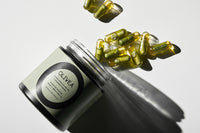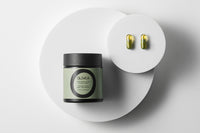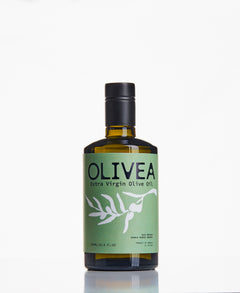The olive oil vs. butter debate has raged for decades. Butter lovers praise its rich flavor, while health-conscious cooks often lean on olive oil. But which fat is truly better for your health—and longevity?
A massive new 2025 study published in JAMA Internal Medicine may have just tipped the scale. Let’s break it down.
Key Differences Between Olive Oil and Butter
| Nutrient (Per Tbsp) | Olive Oil | Butter |
|---|---|---|
| Calories | 119 | 102 |
| Total Fat | 13.5g | 11.5g |
| Saturated Fat | 2g | 7g |
| Unsaturated Fat (MUFA + PUFA) | ~11g | ~3g |
| Cholesterol | 0mg | 31mg |
| Antioxidants (e.g. polyphenols) | Yes (esp. hydroxytyrosol) | No |
What the 2025 Study Found
Researchers tracked over 220,000 adults for 33 years, analyzing how butter and plant-based oil consumption affected long-term health outcomes.

The Results:
-
High butter intake was linked to a 15% higher risk of death
-
High olive oil intake was linked to a 16% lower risk of death
-
Replacing just 10g of butter per day with olive oil was associated with:
-
17% lower total mortality
-
17% lower cancer mortality
-
A potential reduction in cardiovascular disease risk (though not statistically significant)
-
Why Olive Oil Comes Out Ahead
1. Fat Quality Matters
Butter is loaded with saturated fat, which can raise LDL (“bad”) cholesterol. Olive oil is rich in monounsaturated fats and polyphenols that help reduce inflammation and oxidative stress.
2. It’s Not Just Cholesterol—It’s Oxidation
When LDL cholesterol oxidizes, it becomes dangerous. Olive oil contains hydroxytyrosol, a potent antioxidant shown to protect LDL particles from oxidation—the first step in plaque buildup.
3. Butter May Increase Cancer Risk
The study also found that high butter intake was associated with higher cancer mortality, likely due to inflammation, hormone disruption, and other mechanisms tied to saturated fat.
Olivea Premium Extra Virgin Olive Oil
What the Experts Say About Olive Oil vs. Butter
Health organizations and researchers around the world have long supported replacing saturated fats like butter with unsaturated fats like those found in olive oil.
The American Heart Association recommends using oils high in unsaturated fats—especially olive oil—in place of butter, lard, and shortening to help reduce the risk of cardiovascular disease.

According to Harvard’s T.H. Chan School of Public Health, the benefits of olive oil go beyond cholesterol:
“Olive oil is a central component of the Mediterranean diet and has been shown to reduce inflammation, improve endothelial function, and reduce the risk of chronic diseases—including cancer and Alzheimer’s.”
And when it comes to longevity, the latest JAMA study confirms: simply swapping butter for olive oil daily can significantly reduce your risk of premature death
What About Taste and Cooking?
Here’s the good news: Olive oil isn’t just healthier—it’s more versatile than most people think.
| Use Case | Winner | Why |
|---|---|---|
| Sautéing | Olive oil | High in antioxidants, stable up to 400°F |
| Baking (yes, really!) | Olive oil | Use light or mild for cakes and muffins |
| Butter-on-toast | Toss-up | Butter wins on nostalgia, olive oil wins on heart health |
| Salad dressing | Olive oil | No contest |
Cooking Comparison – Butter vs. Olive Oil
One of the most common questions is whether olive oil holds up to heat—and how it compares to butter in the kitchen.
| Feature | Butter | Olive Oil |
|---|---|---|
| Smoke Point | 300–350°F | 375–410°F (EVOO) |
| Flavor | Rich, creamy | Earthy, grassy, peppery |
| Best Uses | Baking, low-temp sauté | Sautéing, roasting, drizzling |
| Oxidation Risk | Higher at heat | Lower in high-quality EVOO |
| Antioxidants | None | Yes (especially hydroxytyrosol) |
Pro tip: For butter-like flavor, use a high-quality, early-harvest olive oil with a peppery finish.
Frequently Asked Questions
Is olive oil better than butter for cholesterol?
Yes. Butter raises LDL (“bad”) cholesterol due to its saturated fat content. Olive oil, especially extra virgin, improves cholesterol ratios and reduces inflammation—both of which are good for heart health.
Can I bake with olive oil instead of butter?
Absolutely. Use a light or refined olive oil for neutral flavor in muffins, cakes, and brownies. You may need to reduce the quantity slightly (use about ¾ of the amount of butter).
Which type of olive oil is healthiest?
Look for extra virgin olive oil (EVOO)—especially early-harvest or high-phenolic varieties. These contain the highest levels of heart-protective antioxidants like hydroxytyrosol.
What if I only use a little butter—is it still bad?
Small amounts now and then are unlikely to be harmful. But if you’re using butter daily, especially on toast, in cooking, or in processed foods, it’s worth rethinking your default fat.
Should You Avoid Butter Completely?
Not necessarily. The occasional use of butter—especially from grass-fed sources—isn’t harmful for most people.
But daily use? That’s where the long-term risks start to stack up.
Better option: Make olive oil your default, and save butter for occasional treats.

How to Get the Benefits of Olive Oil—Every Day
To match the health benefits seen in the study, you’d need to consume at least 20–25g of olive oil daily.
But getting enough of the right compounds—like hydroxytyrosol—isn’t easy unless you're using high-phenolic olive oil (most grocery store brands don’t qualify).
That’s Why We Created Olivea
Olivea delivers 20mg of pure hydroxytyrosol per capsule—equivalent to the antioxidant power found in a liter of high-phenolic olive oil. It's a simple, once-daily way to support heart health, without changing your diet.
✅ Supported by the latest scientific research and human trials
✅ Just 4 calories
✅ No mess, no prep, no oxidation from cooking
Final Verdict: Olive Oil vs. Butter?
If you’re looking to protect your heart, lower your risk of disease, and still enjoy rich flavor—olive oil is the clear winner.
And if you’re not sure you’re getting enough of the right kind? That’s where Olivea comes in.
Just one capsule delivers 20mg of hydroxytyrosol, the polyphenol behind olive oil’s heart-protective power—without the calories, the bottle, or the daily guesswork.







